#Club100||The Legitimacy of the Unmeasured Sale and Purchase: A Case Study of the Sale and Purchase of Ready-to-Plant Rice Seeds
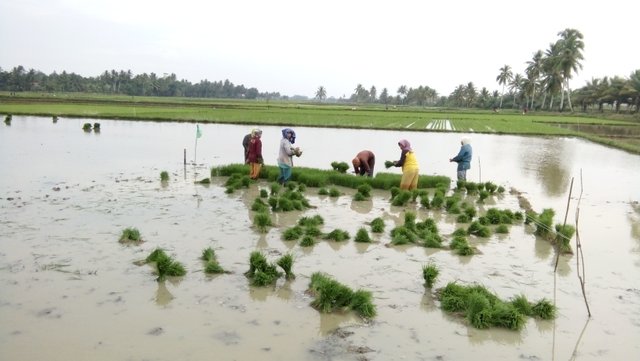
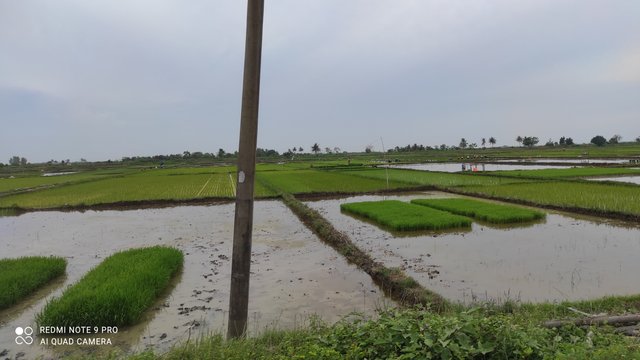
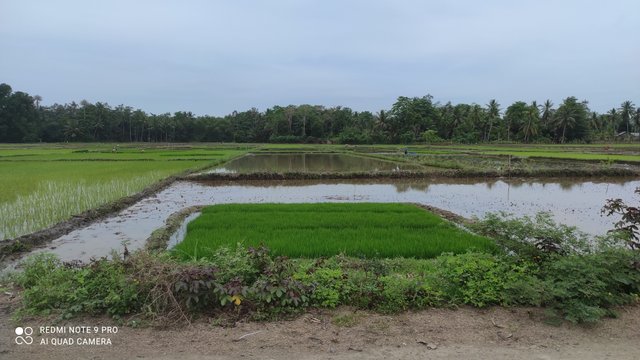
Buying and selling is a means for the community to meet the needs of each other which is identical to the transaction of exchanging goods for goods or goods for money by releasing property rights from one to another on the basis of mutual consent. The basic understanding of buying and selling is an agreement to exchange objects or goods that have value voluntarily between the two parties, one receiving the objects and the other party receiving them in accordance with the agreement or conditions that have been justified by syara and agreed upon.
The implementation of the sale and purchase must be in accordance with the provisions of syara, meaning that the fulfillment of the pillars, terms and other matters related to the sale and purchase must be in accordance with the law of syara. The sale and purchase can be said to be valid if it has fulfilled the pillars and conditions of the sale and purchase itself and when one of the conditions or pillars of the sale and purchase itself is not fulfilled, then the law of buying and selling becomes invalid.
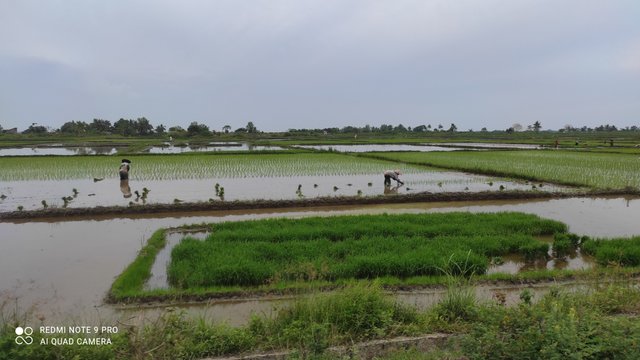
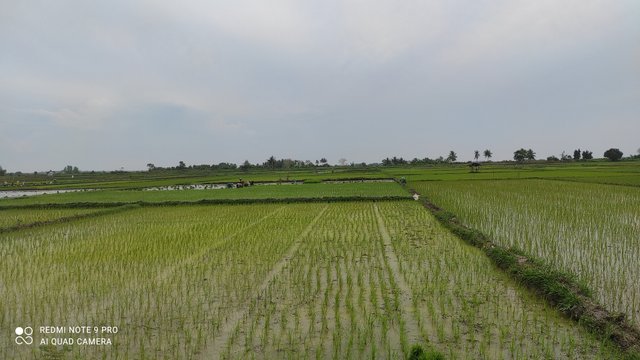
The implementation of the sale and purchase of ready-to-plant rice seeds in Trieng Matang Ubi Village, Lhoksukon District is a sale and purchase that has fulfilled the pillars and conditions both in terms of aqidain (two people who have a contract) namely the seller and the buyer, the existence of a shighat ijab qabul (handover statement) of goods and the existence of maqud (goods traded) namely rice seeds ready for planting.
Based on the results of the research that the author has described, according to the fiqh muamalah review, the implementation of buying and selling rice seeds ready for planting in Trieng Matang Ubi Village, Lhoksukon District is a sale and purchase that fulfills the pillars and conditions, namely the presence of sellers (farmers who have excess rice seeds ready to plant and sell them), there are buyers, namely farmers who lack ready-to-plant rice seeds, there is an ijab qabul (handover) of goods, there are goods that are traded in this case in the form of ready-to-plant rice seeds. While the conditions in buying and selling, namely the conditions relating to the seller and the buyer are both mature, not forced, Islam, and the buyer is not an enemy of the seller.
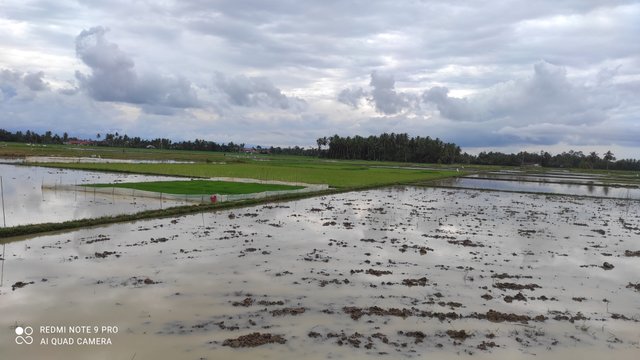
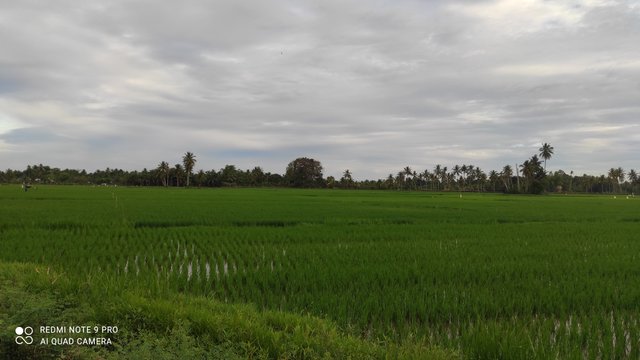
Meanwhile, regarding the terms of the goods being traded, namely the goods are sacred, useful, can be handed over, own property, clear and can be seen.
In terms of the above conditions, the sale and purchase of ready-to-plant rice seeds in Trieng Matang Ubi Village, Lhoksukon District, has fulfilled these requirements. Both the farmers who sell ready-to-plant rice seeds and the farmers who buy them are already mature and they are not forced to do the buying and selling.
The shighat requirement is that there is an ijab qabul between the seller and the buyer, in this case it is also in accordance with the provisions of syara. it can be concluded that the sale and purchase of ready-to-plant rice seeds in Trieng Matang Ubi Village, Lhoksukon District, has met these requirements.
In addition to looking at the elements of the terms and conditions of buying and selling that have been fulfilled, in the implementation of the sale and purchase of ready-to-plant rice seeds that occurred in Trieng Matang Ubi Village, Lhoksukon District, North Aceh Regency.
Ready-to-plant rice seeds that are sold are only approximated in determining each bond, without any calculation of the dose, weighing in the same unit. As the author has explained in the results of the study, by holding the farmer's hand, the seed owner is then sold at the same price for each hand or commonly called each gasai seed ready for planting. However, the problem is that there is no clarity in the size and dosage, because the size of one gasai seed or the size of each person's hand grip is not the same, some are wide, some are small, definitely will not be the same size in taking rice seeds.
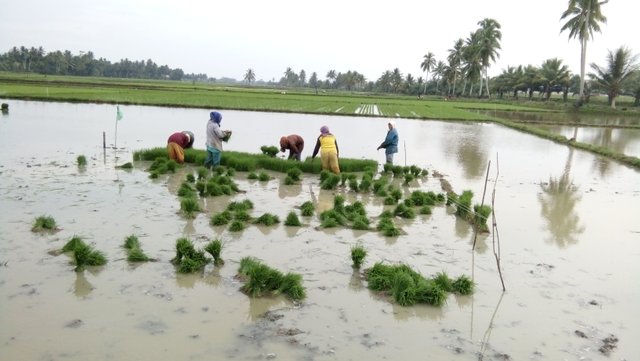
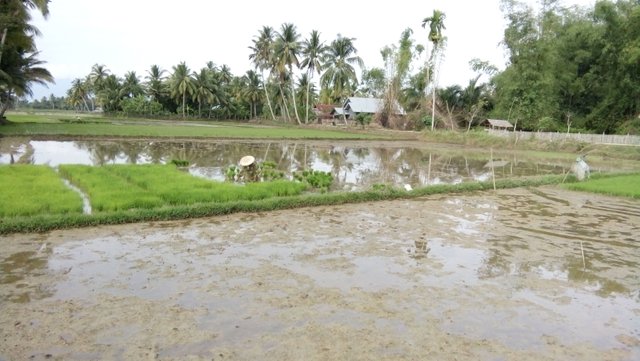
Even though it is done by one person, in essence, it is possible that each hand will hold rice seeds of different sizes. In this sale and purchase, there is still a vagueness in the object to be sold in terms of size or measure
In muamalah fiqh, one of the permitted forms of buying and selling is the so-called jizaf sale and purchase. The sale and purchase of jizaf is a transaction on something without being measured, weighed or calculated in units, but is only estimated and estimated after witnessing or seeing the goods. Jizaf seen from the origin of the word means to take something with a lot. Syaukani defines this type of transaction as any purchase whose amount is not known in detail
The scholars require 7 conditions for the validity of the sale and purchase of jizaf, namely:
- Merchandise visible to the eye during the contract or before
- Each seller and buyer does not know the size of the merchandise, whether weighing, measuring or uniting. If one of them knows the size because the other was told after the contract, then he has the right of khiyar.
- The purpose of buying and selling in jizaf is to buy in large quantities, not in units.
- Merchandise must be assessed by a person who is an expert in assessing, so that the sale and purchase of jizaf in goods that are difficult to estimate is not valid.
- Merchandise amounted to a lot but not very much. If there are a lot of merchandise, then it is forbidden to sell them in a jizaf, whether the goods are measured, weighed, or counted in units, because it is difficult to estimate and estimate them.
- The surface of the land on which the merchandise is placed is flat, both in certainty and in estimation.
- One contract may not include buying and selling in jizaf and with a measure of the same two goods, whether the goods are of the same type or not.
Based on the opinion of Maliki, Shafii, Ahmad, Abu Yusuf, and Ibn Hasan, that the sale and purchase of jizaf can be done on any item, then the sale and purchase of ready-to-plant rice seeds in Trieng Matang Ubi Village may be carried out because the nature of jahalah (unknown) will disappear by itself when the contract occurs.
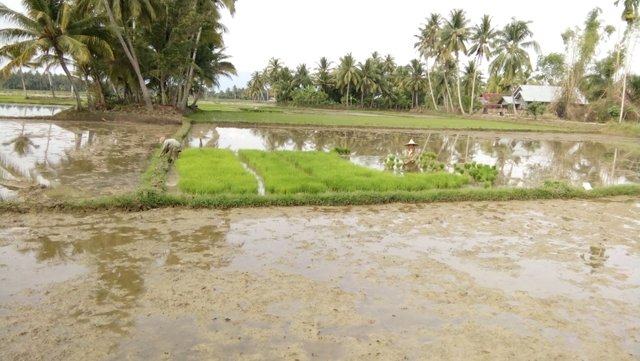
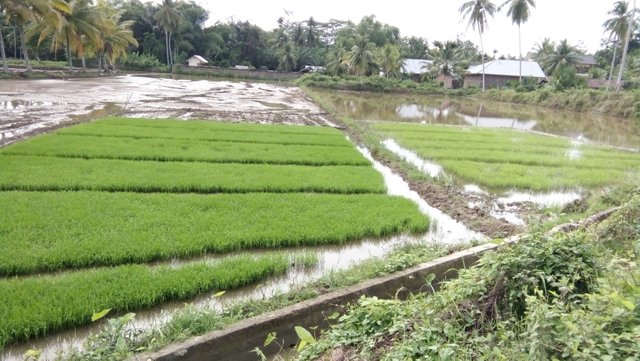
The sale and purchase of ready-to-plant rice seeds has also become a habit that is difficult to change, where in almost all places farmers pull out seeds that are ready to be planted with large doses using hand grips which in Aceh in general and North Aceh in particular are called gasai. The size of one grip is considered good and becomes a custom or habit that is difficult to leave. In response to this, one of the rules in Islamic law can be seen. Meaning: Customs can be established as law.
Every case that has become a tradition among Muslims and is seen as a good case, then the case is determined as the basis of sharia law. Opposing urf (habits) that have been seen as good by society will cause difficulties and narrowness.
A custom or urf can be accepted if it fulfills the conditions that it does not conflict with the shari'ah, does not cause harm and does not eliminate the benefit, has been applied to Muslims in general, does not apply in mahdlah worship (pure) and does not conflict with clear laws.
Based on the results of the research that the author has described, it can be understood that the implementation of buying and selling rice seeds ready for planting in Trieng Matang Ubi Village is also in accordance with the tabaduli manafi principle where muamalah activities must provide mutual benefits and benefits. In the sale and purchase of ready-to-plant rice seeds, farmers, sellers of rice seeds and buyers, both get the benefits and advantages. The sale and purchase has also fulfilled the interdependence principle, namely the willingness of both parties, where farmers who sell ready-to-plant rice seeds and farmers who buy them have been willing and forgiven each other if it occurs more or less in the dose of rice seeds that use the size of one grip or one gasai. Farmers who buy have been willing to accept a number of rice seeds that are not exactly the same in one hand, and farmers who sell have been willing to give a number of rice seeds to buyers with different amounts between palms, even though at the same price.
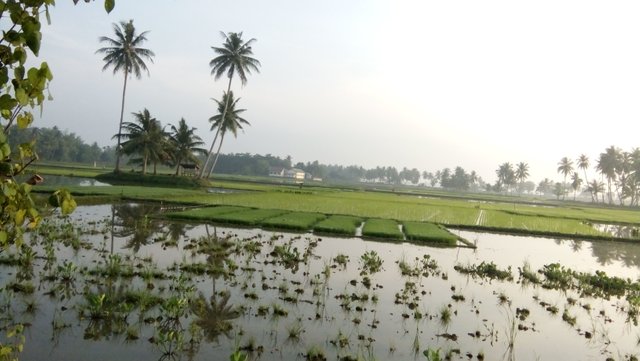
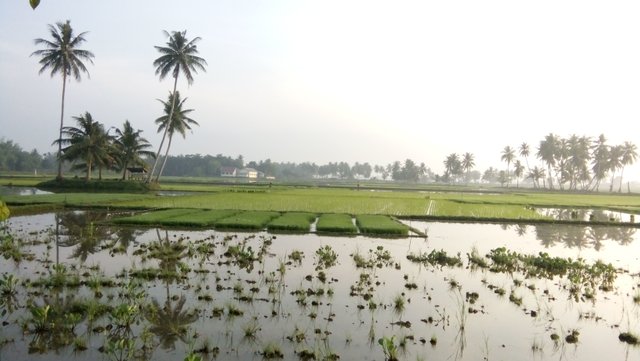
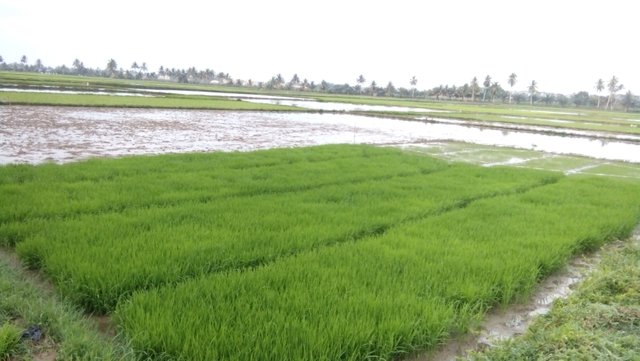
Based on the discussion above, it can be concluded that according to the fiqh muamalah review, the sale and purchase of ready-to-plant rice seeds in Trieng Matang Ubi Village is legal and in accordance with the provisions because the pillars and conditions of sale and purchase have been fulfilled, both the terms of aqidain (two people in agreement), namely the seller and the seller. buyers, shighat and maqud alaih (goods traded). The sale and purchase can be classified in the sale and purchase of jizaf, which is legal, namely buying and selling goods that are difficult to measure so they must use a special measure, such as by means of one hand (gasai).
The sale and purchase of ready-to-plant rice seeds in Trieng Matang Ubi Village has also fulfilled the muamalah principle, namely the tabaduli manafi' principle where muamalah activities must provide mutual benefits and benefits and the interadhin principle, namely the willingness of both parties, both the seller and the buyer.
Thank You Very Much for Visiting and Reading My Blog


SPECIAL THANKS TO:
@kouba01
@japansteemit
@juichi
@tomoyan
@yasu
@zulhendra
@ponpase
@malihafarhan
@ecoshynthesizer
@dr-frankenstein
Best Regard
@abialfatih

Note: You must enter the tag #fintech among the first 4 tags for your post to be reviewed.
Thanks for your attention and support
Hi, @abialfatih,
Thank you for your contribution to the Steem ecosystem.
Please consider voting for our witness, setting us as a proxy,
or delegate to @ecosynthesizer to earn 100% of the curation rewards!
3000SP | 4000SP | 5000SP | 10000SP | 100000SP
Thank you for sharing posts in japansteemit community.Stay consistent to share unique posts.
Thanks my sister
When I went to university, I had the opportunity to see a rice field. Rice farming was much more difficult than it seems. Definitely the farmer should earn a lot of money from this business. because the greatest effort belongs to him
Yes, its true... are you from turkey? are there rice fields in turkey?
Of course there is. Especially in the Marmara and Aegean regions. Yes Turkish